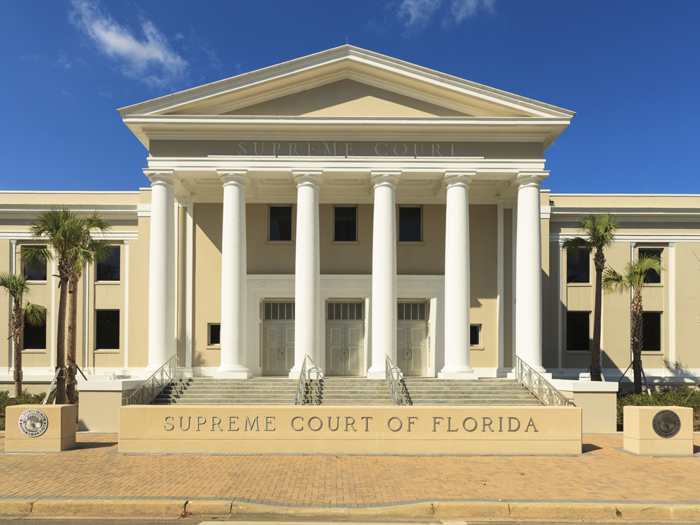Legal Analysis
Florida High Court Signals Demise of Controversial Ruling

To the extent a trial-court decision declaring the Florida Workers’ Compensation Act unconstitutional was the shot heard ‘round the workers’ compensation world, a new Florida Supreme Court ruling is a powerful salvo.
Florida Circuit Court Judge Jorge E. Cueto last summer declared the state’s Workers’ Compensation Act unconstitutional.
The case now known as Padgett drew national attention when Cueto ruled that the Workers Compensation Act no longer provides injured workers with an adequate remedy because of benefit cuts lawmakers implemented over the years.
While the Supreme Court of Florida did not directly rule on the constitutionality of the Florida Act — that question was not before the court — it is difficult to see how Padgett can stand in the wake of the high court’s decision in Leticia Morales v. Zenith Ins. Co., handed down Dec 4, 2014.
Responding to three questions certified to it by an appeals court, the high court held in Morales vs. Zenith that a provision in a landscape company’s employer liability policy that excluded from coverage “any obligation imposed by workers’ compensation … law” excludes coverage of an estate’s claim for a $9.525 million default judgment entered against the company in a state trial court.
Morales sustained fatal injuries in a landscaping accident. His widow entered into a settlement agreement with Zenith Insurance, which provided Morales’ employer with both a workers’ compensation policy and one for employer liability.
The agreement provided for a payment to Ms. Morales in exchange for a release from all liability regarding insurance coverage provided to the employer by Zenith.
At the time of the settlement agreement, Ms. Morales also had initiated a wrongful death action against the employer. She obtained a default judgment and then sued Zenith in state court, requesting that it be required to pay under the terms of the employer liability policy.
The matter was removed to federal court, where the district court held the insurance policy’s exclusion provision barred any recovery. Ms. Morales appealed, contending the judgment was not the result of a workers’ compensation claim and that Zenith, therefore, should have to pay.
Following certification of the questions to the Supreme Court of Florida, that court said, in relevant part, that the employer liability insurance was a “gap-filler,” providing protection in those situations in which the employee had a right to bring a tort action despite the provisions of the workers’ compensation statute.
The high court continued that the estate did not have a right to proceed in tort against the employer; its exclusive remedy was under Florida’s Workers’ Compensation Law. The default judgment did not alter the fact that a wrongful death action was barred.
The court concluded that in as much as the workers’ compensation policy and the employer liability policy provided mutually exclusive benefits to the employer, the liability policy’s exclusion clause precluded any recovery by the estate.
While the court did not discuss either Padgett or the constitutionality of the Florida Act, it is difficult to see how Judge Cueto’s decision in Padgett can stand in the fact of the Morales decision.
If the state supreme court had any notion that the exclusive remedy provisions of the Act or the Act itself could not withstand the sort of onslaught represented by Padgett, the court likely would have given us some indication. It did not.
Padgett is currently before Florida’s Third District Court of Appeals. That court, armed now with an understanding that the Supreme Court likely has its back, should give Padgett an ignominious end.










